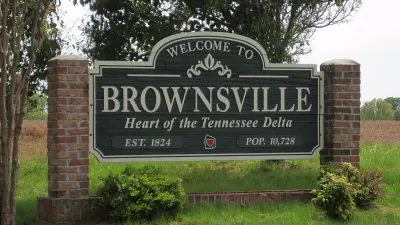In a piece for New Geography, Bill Fulton says that the cool v. uncool debate asks the wrong question. The issue is whether their economy is based on exports or imports.
Sometimes, when a big debate can't be resolved, it's because the wrong question is being asked. Such is the case with the seemingly endless "cool v. uncool" debate about cities. In this excerpt from Romancing The Smokestack, Bill Fulton argues that cities can be prosperous and successful whether they are cool (galleries, lofts, etc.) or uncool (lunchbucket factories). The common factor in all successful cities is -- or at least should be -- that they are based on exporting goods and services, not merely importing money.
A tourist town, retirement community, or bedroom suburb may seem successful on many levels. After all, in every case a lot of people in the city are dropping money locally to keep businesses going -- visitors, retirees, or commuters. But these cities are basically in the business of importing money. Since those spending money are not dependent on the local economy, their affuence is likely to create nothing more than a two-tier economy, with many low-paid workers servicing them.
By contrast, a city that produces goods and services for export is likely to be more consistently prosperous and less likely to be vulnerable to economic ups and downs. The jobs created are likely to be better paying and other companies will spring up as part of the spuply chain. and it doesn't matter what's being exported -- ideas, steel, software, whatever. The common denominator is the export.
Thanks to Bill Fulton
FULL STORY: Cities That Prosper, Cool Or Not

Americans May Be Stuck — But Why?
Americans are moving a lot less than they once did, and that is a problem. While Yoni Applebaum, in his highly-publicized article Stuck, gets the reasons badly wrong, it's still important to ask: why are we moving so much less than before?

Using Old Oil and Gas Wells for Green Energy Storage
Penn State researchers have found that repurposing abandoned oil and gas wells for geothermal-assisted compressed-air energy storage can boost efficiency, reduce environmental risks, and support clean energy and job transitions.

Placekeeping: Setting a New Precedent for City Planners
How a preservation-based approach to redevelopment and urban design can prevent displacement and honor legacy communities.

San Francisco’s Muni Ridership Grew in 2024
The system saw its highest ridership since before the Covid-19 pandemic, but faces a severe budget shortage in the coming year.

Colorado Lawmakers Move to Protect BRT Funding
In the face of potential federal funding cuts, CDOT leaders reasserted their commitment to planned bus rapid transit projects.

Safe Streets Funding in Jeopardy
The Trump administration is specifically targeting bike infrastructure and other road safety projects in its funding cuts.
Urban Design for Planners 1: Software Tools
This six-course series explores essential urban design concepts using open source software and equips planners with the tools they need to participate fully in the urban design process.
Planning for Universal Design
Learn the tools for implementing Universal Design in planning regulations.
Heyer Gruel & Associates PA
City of Moreno Valley
Institute for Housing and Urban Development Studies (IHS)
City of Grandview
Harvard GSD Executive Education
Salt Lake City
NYU Wagner Graduate School of Public Service
City of Cambridge, Maryland





























